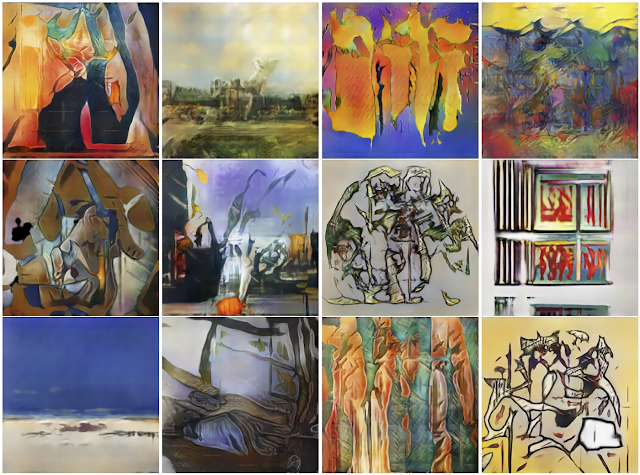Artificial intelligence (AI) can be used to generate art in a variety of ways, including through the use of machine learning and computer vision techniques.
One common method for generating art using AI is through the use of generative adversarial networks (GANs). GANs are a type of deep learning algorithm that consists of two neural networks working together: a generator network and a discriminator network. The generator network creates new images or artworks, while the discriminator network tries to distinguish between real and fake images. Over time, the generator network learns to create more convincing and realistic images or artworks, based on feedback from the discriminator network.
Another method for generating art using AI is through the use of style transfer algorithms. Style transfer algorithms work by analyzing the content and style of two different images, and then combining them to create a new image that combines the content of one image with the style of the other. This technique can be used to create new artworks that combine the style of one artist with the subject matter of another, for example.
AI can also be used to generate art through the use of computer vision techniques, such as image recognition and object detection. These techniques can be used to analyze existing artworks and identify patterns or styles that can be used to generate new artworks. For example, an AI system could be trained on a dataset of abstract expressionist paintings, and then used to generate new paintings that mimic the style of that genre.
Overall, AI-generated art is a growing field that is producing new and innovative works of art that challenge our traditional notions of creativity and authorship. While there is still debate over the role of AI in art and the extent to which it can truly be considered "creative," there is no doubt that these technologies are opening up new possibilities for artistic expression and exploration.



No comments:
Post a Comment
Contact The Wizard!
(he/him)